Al Bedaya - The Beginning
About the CSO
The Information and Research Center – King Hussein Foundation (IRCKHF) promotes the welfare of children, youth, women, families, communities, and vulnerable groups by providing objective, multidisciplinary research and analysis to practitioners and policymakers in Jordan and the Middle East, enabling effective socio-economic planning and decision-making.
The team
Clockwise from top left: Rachel (data journalist, Brazil), Giorgio (team leader, Italy), Saleem (data researcher, Jordan), Lody (designer, Indonesia), Reem (graphic designer, Egypt), Jude (IRCKHF rep), Hadeel (IRCKHF rep), Daniele (web developer, Italy)
About the topic
Jordanian orphans and children with no family ties are expected to survive and thrive once they leave the care system. But in a country where family is everything, these children face relentless discrimination, few people will be their friends and getting married or even finding a job can be difficult. IRCKHF work with these children to prepare them for a life outside the care system and attended DATA4CHANGE in the hope to create a data driven advocacy campaign based on data they had collected on this issue.
A look at the data
In 2016 IRCKHF carried out a national social stigma survey in regards to their perceptions and social discrimination towards orphans and youth deprived of family ties. The survey contains 600 respondents, 71 questions and demographic information. At the workshop the team aggregated part of the questions according to social interaction (e.g work, marriage, education etc) and parents’ status (e.g unknown father, unknown parents, etc). This allowed the team them to identify and target the big issues as well as “simplify” some concepts to a broader audience. Some of the data insights included that only 25% of all respondents said they would NOT discriminate against someone without a family, that some groups of children with no family ties are more stigmatised than others, and that the level of discrimination varies depending on location.
Their objectives
Pretty early on in the workshop the team decided that they wanted to reach two target audiences with their campaign. Firstly, they wanted to raise awareness about the daily struggle of care-leavers and create empathy in order to change public perception of care-leavers.
Secondly, they wanted to empower care-leavers to succeed in life by giving them practical information that in a traditional family setting come from relatives such as open a bank account, find accommodation and a job etc. This part of the project could repurpose some printed material that IRCKHF had already produced for the care-leavers, but that they had not yet been able to share with them electronically in an effective way.
ResultOn the first day of the workshop the team created user personas for each target group they wanted to reach and they also set SMART goals for the campaign, did loads of sketching and data exploration. And by the end of the day they had nailed down their concept. During the next few days they designed and built the prototype.
The result of the team’s hard work is Al Bedaya, which means ‘The Beginning’ in Arabic. It was one of the most advanced prototypes ever created at a DATA4CHANGE event. It is a data-driven digital campaign that empowers youth deprived of family ties with practical information whilst also inspiring empathy for them by their Jordanian peers.
Al Bedaya consists of two streams, one for the Jordanian public and one for the care-leavers themselves.
To help guide the user through the project the team created Salma, a fictional character based on the dataset that curates the whole campaign. The public facing stream is called Rehla (The Journey), which is a visual data-driven story about a fictional character called Salma who is based on the data that IRCKHF has on care-leavers. Through Salma’s story the user finds out what it is like growing up in the care-system without a family in Jordan and the discrimination she faces. Her story is accompanied by simple illustrations and easy to understand data visualisations that allows the user to explore IRCKHF’s data.
For the care-leavers the team created Koutayeb (The Kit), this is an easy-to-use digital kit curated by IRCKHF to help care-leavers in their daily activities once they leave care centers, it offers practical guides and peer-to-peer recommendations and positive statistics about care-leavers to boost their confidence. It also has a reporting tool where care-leavers are able to report instances of discrimination directly to IRCKHF, it also contains an emergency contact.
Google Sheets powers the content, free and easy to update!
The project uses a server-less approach to make the content upload easy for IRCKHF using Google Sheets and the reporting tools uses KoBo toolbox. The project is Arabic first, but Salma’s story is available in English.
Impact
This prototype was fully develop the project and launched it in time for the Arab Orphans Day, which takes place on 5 April each year. Two social media campaigns were created to support the project, one for the Rehla (The Journey) targeting the public in both Arabic and English, and one for the care-leavers Koutayeb (The Kit) in Arabic. The campaign for the care-leavers was shared via private WhatsApp groups, email and in person. The public campaign got more than 120k engagements on Facebook.
Below are some of the social media assets that were created for these two campaigns.













